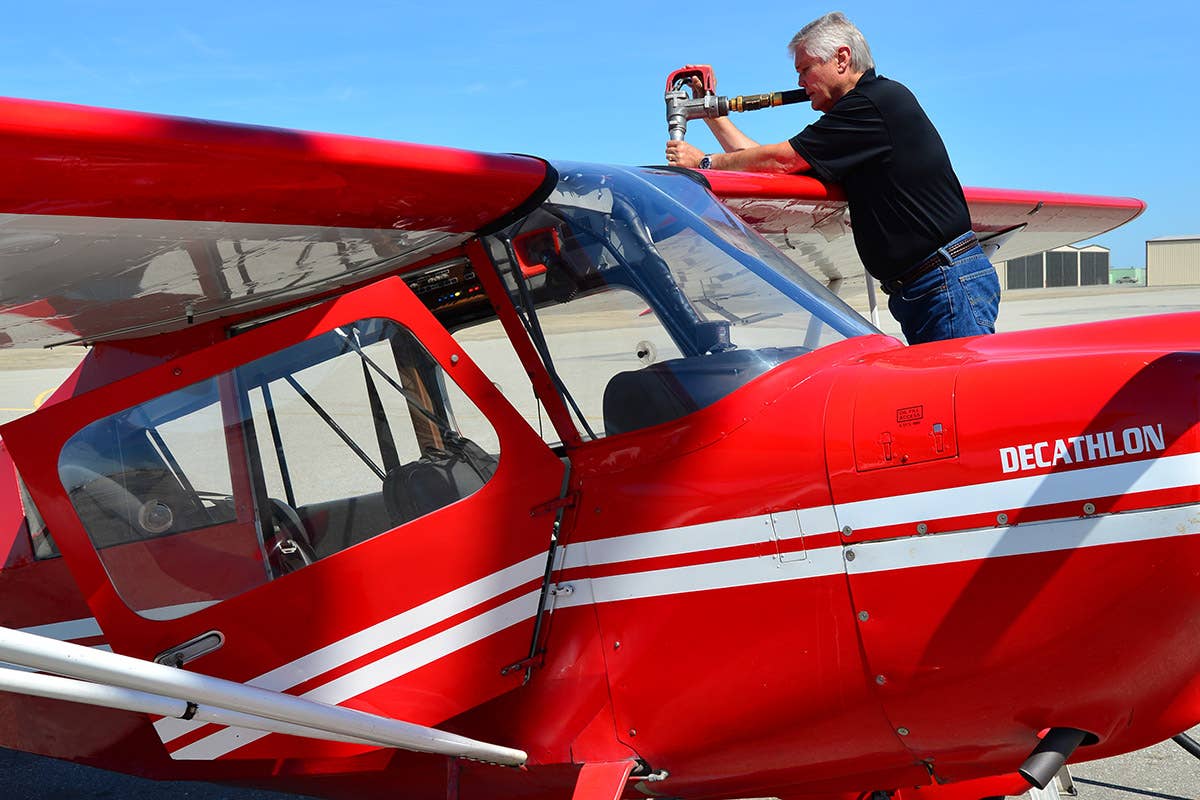Transition Away From Leaded AvGas on Track, GA Stakeholders Tell Congress
Staffing shortages affecting the FAA have caused backlogs in several areas.

A number of GA topics were discussed during Thursday’s House Aviation Subcommittee hearing, including the transition to unleaded fuels, workforce development, staffing shortages, airport funding, and aviation safety. [File photo: Adobe Stock]
As Congress continues to work toward a comprehensive FAA Reauthorization Bill, the House Aviation Subcommittee held its second meeting focused on general aviation priorities and the challenges it faces.
This year marks the first time GA has a seat at the table as the committee has announced its intention to include a general aviation section in the bill.
Leaders from several GA organizations including the Aircraft Owners and Pilots Association (AOPA), Experimental Aircraft Association (EAA), American Association of Airport Executives (AAAE), and National Air Transportation Association (NATA), testified before the committee during the March 9 hearing.
FAA Reauthorization comes up every four or five years, setting the stage for the FAA and aviation for the coming years. The bill includes all programs and policies by the FAA including airports, airlines, general aviation, business aviation, manufacturers, air traffic controllers, and autonomous vehicles.
A number of topics including the transition to unleaded fuels, workforce development, staffing shortages, airport funding, and aviation safety were discussed in Thursday’s testimony.
Much of the hearing focused on the overwhelming support of the Eliminate Aviation Gasoline Lead Emissions (EAGLE) initiative—a major priority for the sector. During the testimony, concerns were raised about the rushed ban of 100 low lead (100LL) fuel before a universal alternative is widely available—as was the case at Santa Clara County. Delays in the availability of the currently promoted alternative fuels have created a gap between the supply and demand for those fuels.
During his questioning, Rep. Scott Perry (R-Penn.) took issue with Santa Clara County’s decision to ban 100LL while accepting federal funds, calling it “offensive.” He argued that any airport taking federal funds should provide necessary services for pilots and shouldn’t compromise safety for what he described as “woke ideology.”
When asked what Congress can do to ensure more instances like Santa Clara County aren’t part of a wider trend, AOPA’s president Mark Baker insisted Congress can make sure airports don’t lose the availability of 100LL until there is a suitable, affordable replacement. He also encouraged Congress to allocate funds for supplemental type certificate (STC) holders in order to get fuel in the market faster. Baker also noted that the industry is on track to meet its goal to safely eliminate the use of leaded aviation fuel by the end of 2030.
Thursday’s testimony also addressed staffing shortages, most notably affecting the FAA, which has caused backlogs for things like aircraft certification, medicals, rulemaking, and designated pilot examiner (DPE) availability—a major setback in issuing new pilot certificates.
In his testimony, EAA CEO Jack Pelton called the DPE shortage a “crisis that needs to be addressed” and suggested Congress implement the DPE Reforms working group’s recommendation that DPE’s go to national oversight level rather than at the local flight standards district office level.
Another major takeaway from Thursday’s hearing was the aviation industry’s workforce challenges and how to recruit both qualified and underrepresented groups. Baker took the opportunity to tout the success of AOPA’s high school aviation STEM curriculum which is currently being utilized by 400 schools across the country and consists of 50 percent people of color and 25 percent females. Additionally, Baker noted that 70 percent of the first graduates of the program are actively pursuing an aviation career.
EAA has also been successful with its own Young Eagles program which has flown more than 2.3 million young people—introducing them to their first flights in general aviation.
Additionally, the National Center for the Advancement of Aviation (NCAA) bill was brought up during the hearing which would be instrumental in addressing workforce challenges. The NCAA would help shape a generation of new pilots, maintenance technicians, and aerospace engineers to promote aviation within the United States.
The House and Senate have until September 30 to draft a comprehensive new FAA Reauthorization bill.

Subscribe to Our Newsletter
Get the latest FLYING stories delivered directly to your inbox






